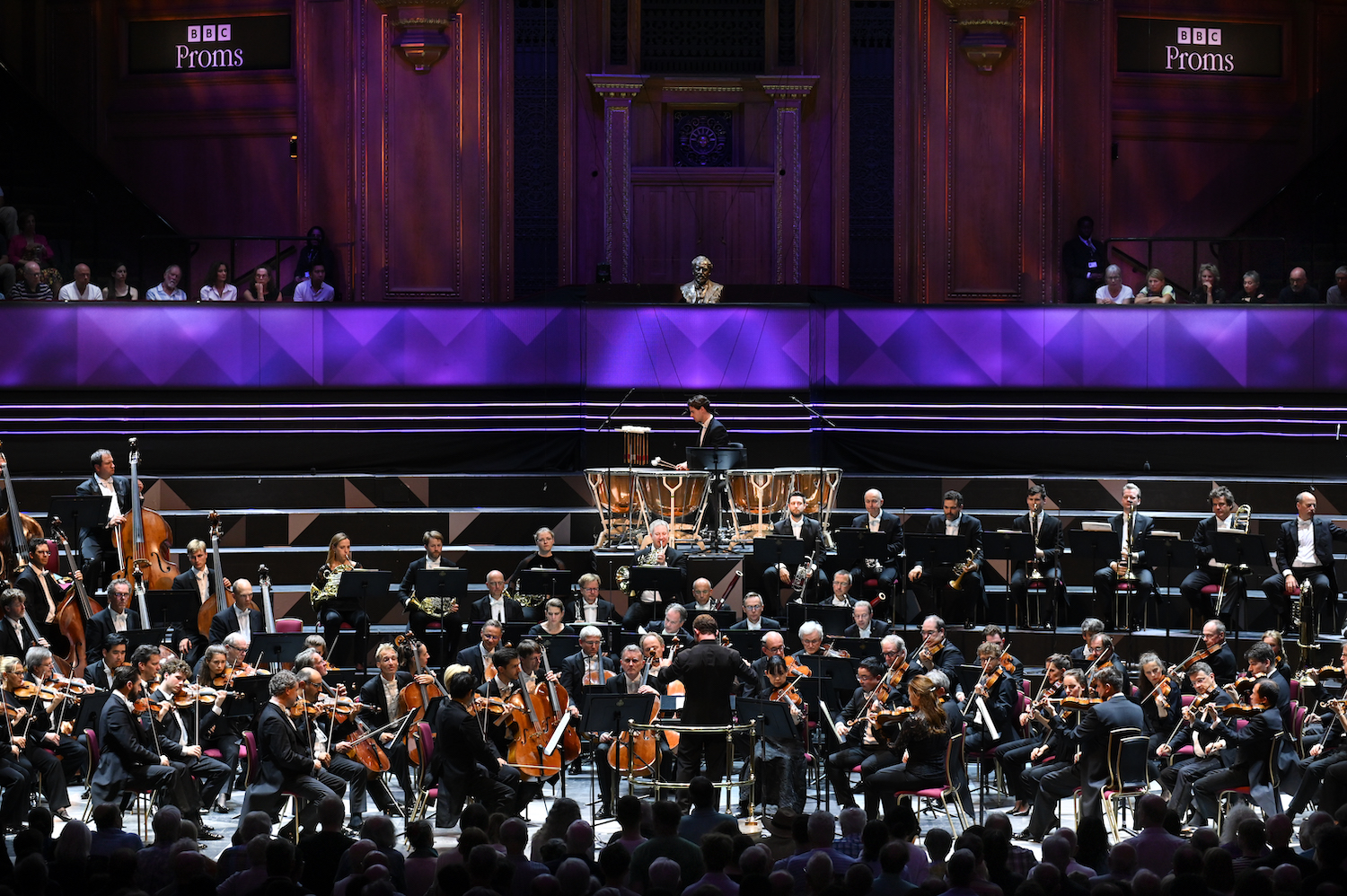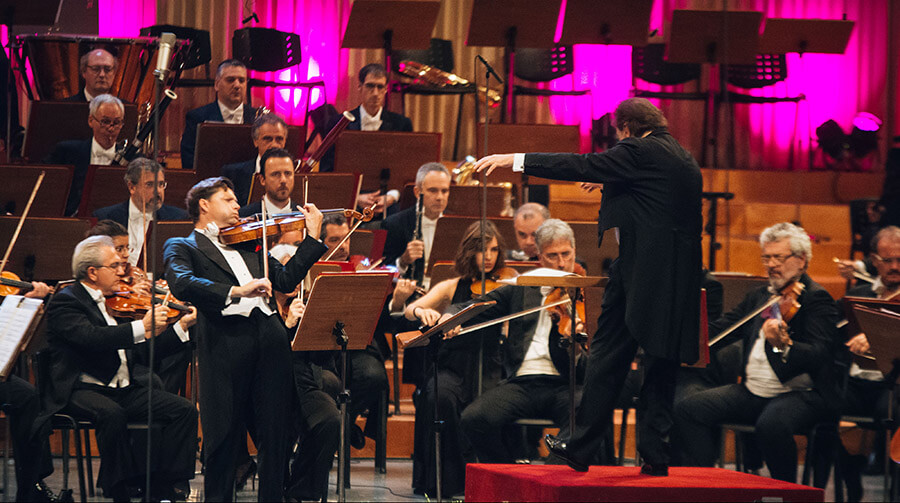Prom 60, Royal Albert Hall, 27 August 2018
Does Leonard Bernstein 28 years after his death really need an advocate? In this country we are particularly keen on celebrating or commemorating the births and deaths of composers. In March it was 100 years ago Debussy died and his music has been heard all over this scepter’d isle, this blessed plot, this England. Leonard ‘Lenny’ Bernstein was born the same year Debussy died. Lenny was not as prolific a composer as Claude, but he more than made up for it by being a very active conductor and enthusiastic pedagogue. The focus has lately been totally on Bernstein because his centenary was on the 25th of August. BBC radio 3 and the magnificent BBC Proms festival are very good at marking these kind of celebrations with concerts, documentaries and podcasts.
Bernstein is a gratifying subject because he lived so many different lives and careers simultaneously. He was a most remarkable conductor, pianist, composer, educator, humanist and political activist. There are still a great many people around that can talk about the different aspects of his character and his many talents. On YouTube you can find a seemingly endless amount of concerts conducted by the maestro. Many of his best educational programmes that he recorded for American TV are also available online. No, Bernstein is far from forgotten, but some of his compositions deserve to be played more often. And who better than Marin Alsop to look after his compositional legacy? Alsop was a protégé of Bernstein, but of course she is also a marvelous conductor in her own right. She has been the Music Director of the Baltimore Symphony Orchestra (BSO) since 2007 and this was their debut concert at the Proms. Alsop is much loved by Proms audiences (having conducted The Last Night of the Proms twice) and the welcome she received while walking to the conductor’s rostrum was thunderous.

The concert started out with a piece never heard before at a Prom. For Slava! A Political Overture (1977) Bernstein decided to incorporate two numbers from his musical 1600 Pennsylvania Avenue, which had tanked the previous year on Broadway. Slava was dedicated to the cellist and conductor Mstislav Rostropovich who had just become Music Director of the National Symphony Orchestra in Washington. Slava means glory or praise in Russian and it was also Rostropovich’s nickname. I am sure this occasional piece is very political to the initiated, but the snippets of pre-recorded election speeches that are shouted over the music make no sense to me. Apparently President Carter was in the audience at the premiere in 1977 and perhaps that is the most political aspect. This overture is perfectly loud, brash and entertaining but really quite inconsequential. I think it would have worked better as an encore.
After this fluffy appetizer I was ready for some music of consequence and with meaty content: Bernstein’s second symphony. Quite honestly I was unfamiliar with the work before this year’s centenary celebrations, but now I consider it one of Bernstein’s best compositions.
Bernstein told an interviewer that after having read W.H Auden’s 80-page (!) poem ‘The Age of Anxiety’ the music almost immediately started to sing. The poem is mostly set in a New York bar and consists of conversations between four strangers: three men and a woman. They end up in the woman’s apartment, but two of the men leave and the third one passes out drunk. Perhaps the woman should be relieved. In many ways the main themes are loneliness and a search for meaning in a recently war-torn world. The poem was published after the war(1947) but it reflected the emptiness that many people felt after all the misery that they had experienced.

Alsop and the BSO treated the Prologue with its clarinet duet with a good deal of gentleness and a sense of trepidation. The descending scale played by the flute forms the bridge to the Seven Ages: Variations 1-7 . Then we are introduced to the piano setting out a slightly dissonant melody. The piano transports us from one variation to the next, with each variation elaborating on an idea or theme from the previous one. After three or four variations it becomes clear that this really is a piano concerto in all but name. The French pianist Jean-Yves Thibaudet recorded this concert five years ago with the same orchestra and conductor. On this occasion Thibaudet’s interpretation displayed even more flair, neurosis and a sense of life’s struggle than on the recording (available on Naxos). It was a nice touch to hear the jazzy Masque scherzo (for piano, bass, timpani and percussion) played without too much stomp and bravura. This seems to signal that the carousing at the woman’s apartment is not a bacchanalian feast after all. It is certainly one of the most memorable movements in American orchestral music. One could argue that the piano represents Bernstein’s own voice and at times I thought that Thibaudet perhaps was trying to portray the composer’s multi-faceted personality in this piece, one could hear so many different shades. The Epilogue is a different beast. In the revised edition from 1965 (played here) the piano is given a cadenza that seems to suggest a sad and lonely life, but then the orchestra takes over and signals a sense of hope and it all ends with the big orchestra treatment that you will find in so many American films from the 40s and 50s. The plaintive element and “loss of faith” may dominate the symphony and therefore the optimistic spin added on at the end can seem an afterthought, but the Baltimore Symphony Orchestra make it all sound perfectly obvious and matter of course the way only Americans can. All in all, splendid!



